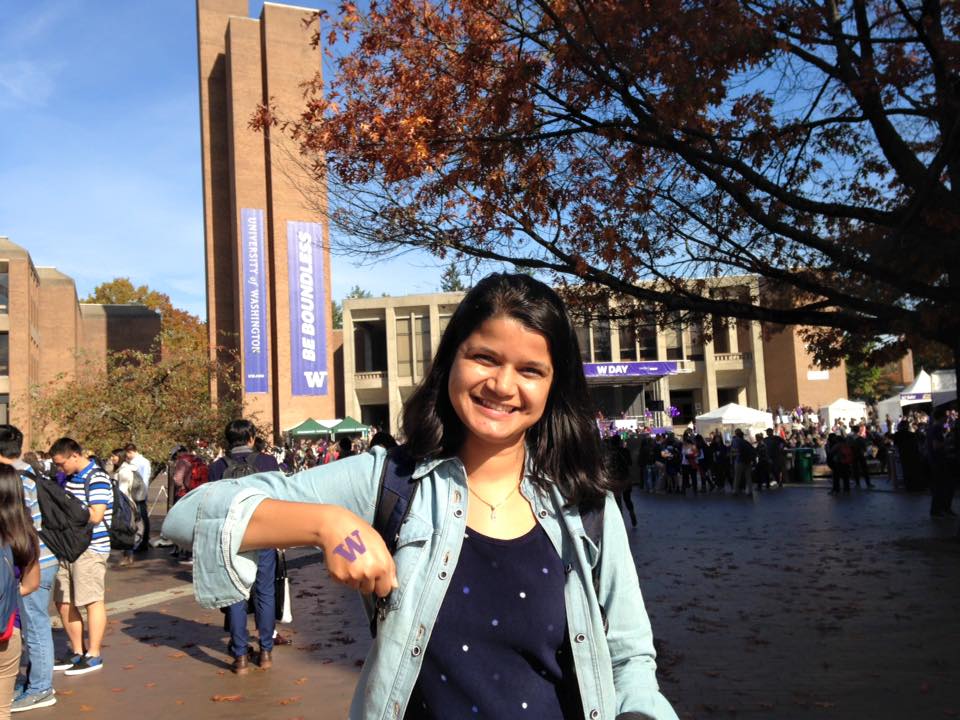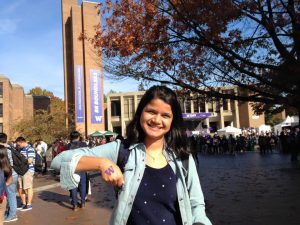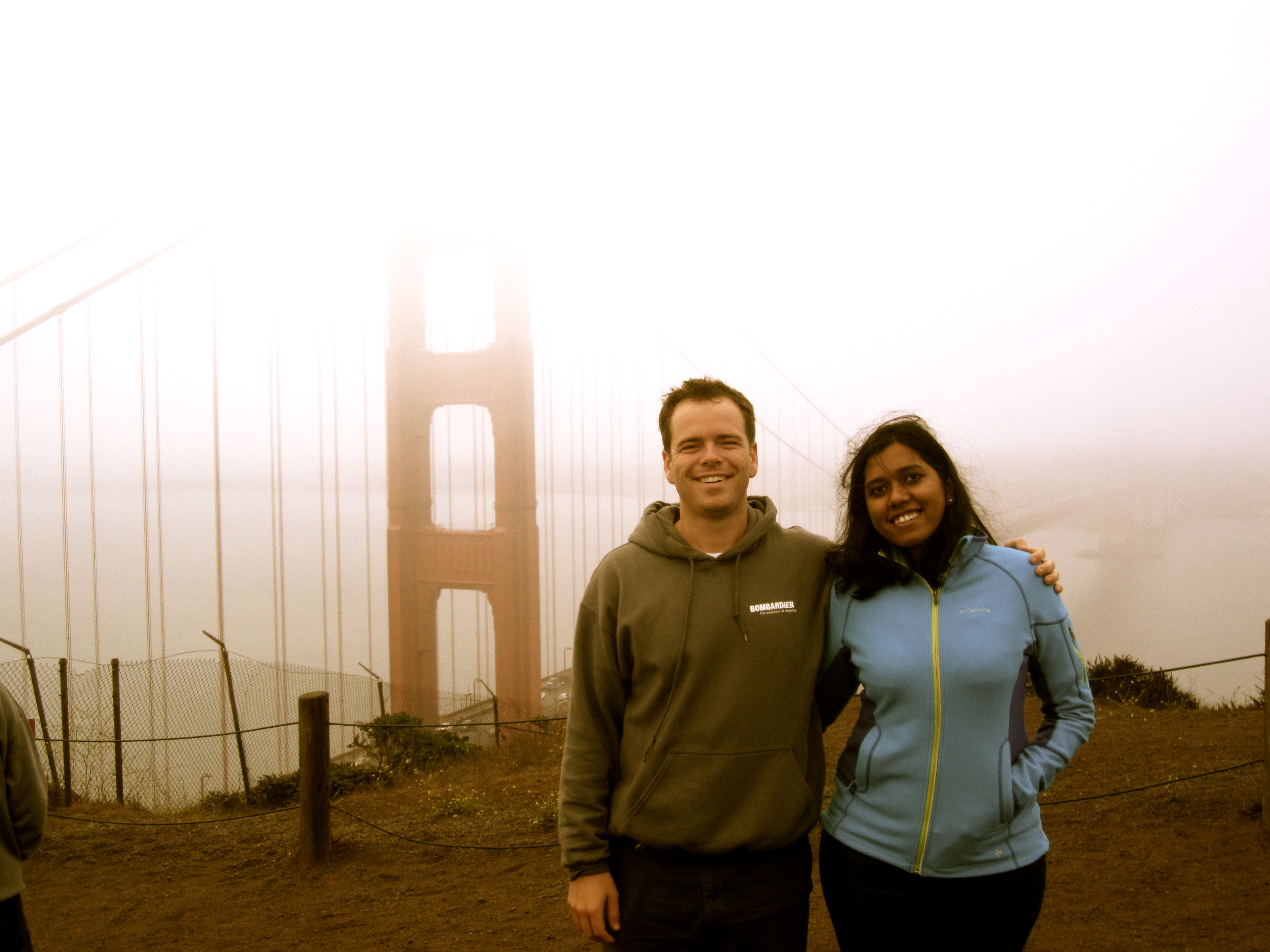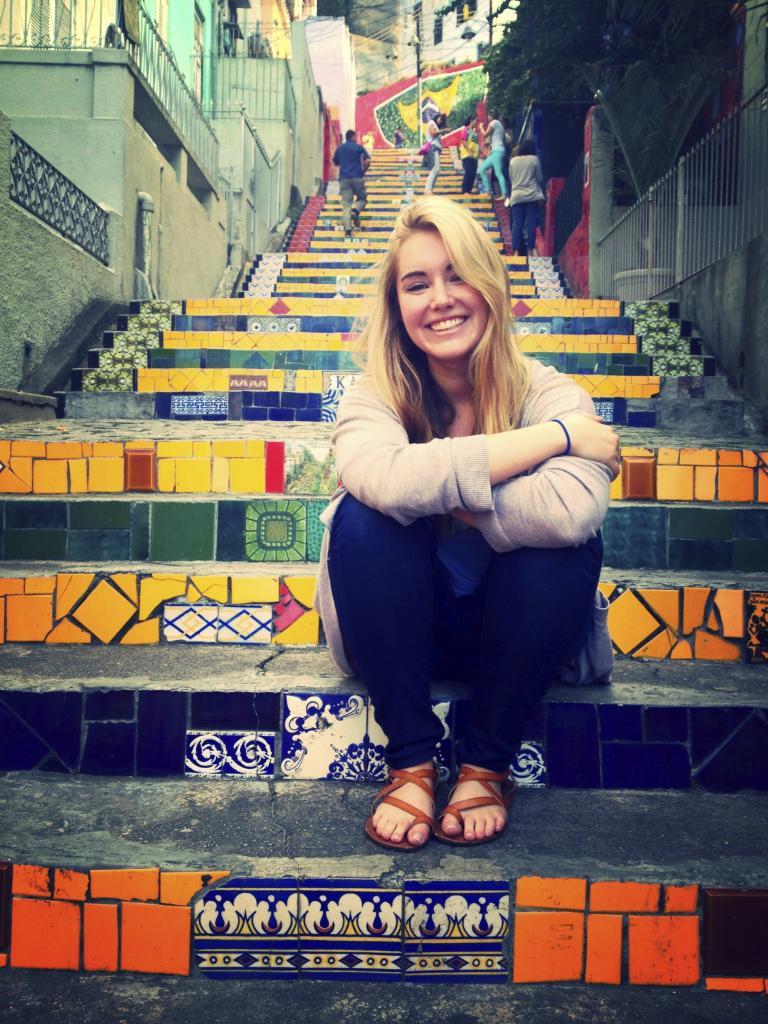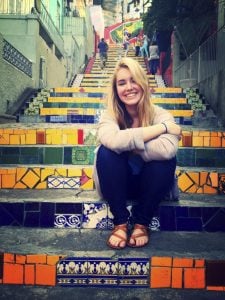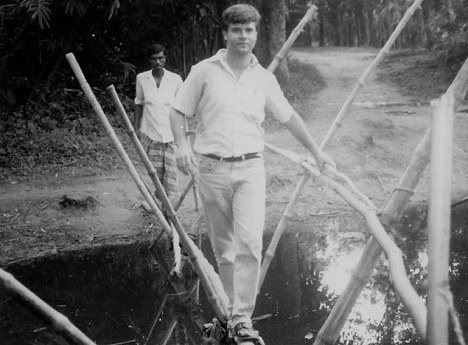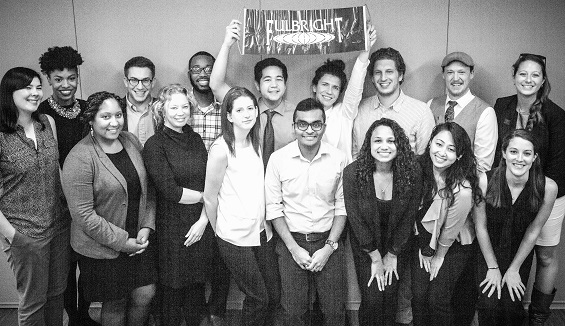
From left to right, back row: Mia Warren, Shondrea McCargo, David Bernstein, Benjamin Simington, Aaron Sayama, Lyuba Basin, Ben Cohn, Ryan Bell, Gwyneth Talley; front row, left to right: Mia Warren, Tanisha Williams, M Jackson, Samantha Costello, Shayak Sengupta, History Estill-Varner, Lin Shi and Katlin Kraska (Not pictured: Sarah Lightfoot-Vidal, Michael Verlezza and Yuriy Veytskin); Photo courtesy of Lee Rivers Photography
On Thursday, February 9, 2017, 19 newly selected Fulbright U.S. Student Program Alumni Ambassadors met in Washington, DC to receive training on how to promote and recruit for the Fulbright U.S. Student Program. Staff members from the U.S. Department of State’s Bureau of Educational and Cultural Affairs (ECA) and the Institute of International Education (IIE), along with previous Fulbright Alumni Ambassadors, shared tips on effectively presenting the impact, innovativeness, and inclusiveness of Fulbright Program opportunities. The orientation workshop emphasized the unique and important role that Fulbright Alumni Ambassadors play in inspiring a diverse range of students, artists, and early career professionals – as well as the Fulbright Program Advisers and college administrators who support them – to learn more about the Fulbright Program and the power of educational and cultural exchange.
The Fulbright U.S. Student Alumni Ambassador Program was established in 2008 to identify, train and engage a select group of approximately 15-20 Fulbright U.S. Student Program alumni to serve as representatives, recruiters and spokespersons for the Fulbright Program. They are selected annually through recommendations from Fulbright Commissions, U.S. Embassy staff, area managers, and the Fulbright Student Program Outreach Division, and approved by the Fulbright Program’s sponsor, ECA. Fulbright Alumni Ambassadors come from an array of different ethnic and socio-economic backgrounds, states, fields of study, and institutions and have participated in the Fulbright U.S. Student Program in all world areas.
To learn more about the Fulbright Alumni Ambassador Program, please click here.


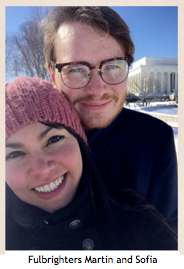
 Being a Fulbrighter will always be an important part of my life. The opportunity to study and immerse myself in a culture abroad opens your horizons and makes you grow in every way. Even still, I never imagined that Fulbright would have an impact on my life in an even more profound way. I am from El Salvador, and in 2011, I was awarded a Fulbright grant to pursue a master’s in tourism at the University of Florida. Upon graduating, I returned to El Salvador, but soon after, I was offered a job with an international organization based in Washington, DC.
Being a Fulbrighter will always be an important part of my life. The opportunity to study and immerse myself in a culture abroad opens your horizons and makes you grow in every way. Even still, I never imagined that Fulbright would have an impact on my life in an even more profound way. I am from El Salvador, and in 2011, I was awarded a Fulbright grant to pursue a master’s in tourism at the University of Florida. Upon graduating, I returned to El Salvador, but soon after, I was offered a job with an international organization based in Washington, DC.